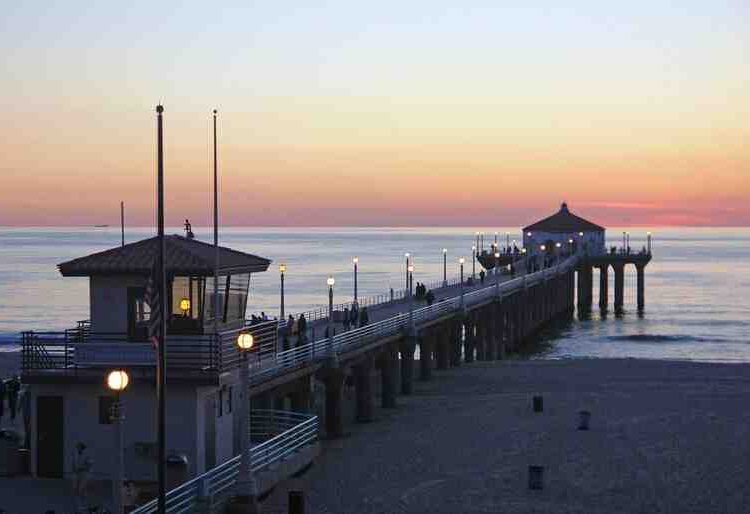A thriving mountain city grapples with the aftermath of a catastrophic storm.
- Asheville’s economy thrived for a decade, attracting new residents and businesses.
- Hurricane Helene caused severe destruction, particularly in the arts district and Biltmore Village.
- Residents face ongoing challenges with no running water, power, or cell service.
- Nearly half of small businesses may not reopen after disasters, raising concerns for local economy.
- The storm resulted in significant loss of life and widespread devastation across the southeastern U.S.
- Many residents are uncertain about the future of their businesses and the community.
Asheville, North Carolina, has enjoyed a decade of economic growth, attracting new residents with its stunning scenery, vibrant arts scene, and pleasant climate. The pandemic further fueled this growth, as remote work opportunities led to an influx of new residents and a boom in local businesses like craft breweries and vintage shops. However, the recent arrival of Hurricane Helene has dramatically altered this landscape, leaving destruction in its wake. nnThe hurricane brought heavy winds and flooding that devastated the arts district and historic Biltmore Village, trapping residents, including retirees, in their homes. Nearly a week after the storm, many areas still lack running water, power, and reliable cell service. The local community is now left to ponder the future of their economy, as statistics show that almost half of small businesses do not reopen after a disaster. nnHurricane Helene has claimed at least 149 lives across six states, with Western North Carolina suffering the most severe impact. The storm’s rapid and intense destruction surprised many who had moved to Asheville seeking refuge from extreme weather. nnLocal business owners, like Megan Parker and Erin Stefanacci, are grappling with the aftermath of the storm. Their yoga studio, Flow at Foundy, was completely flooded, despite their efforts to protect their investment. They had opted out of flood insurance, believing they could manage minor water damage, but the reality proved far worse. nnThe scale of the devastation has drawn comparisons to historic flooding disasters, such as those caused by hurricanes Katrina and Harvey. Many local artists and small business owners are now facing the grim reality of lost inventory and damaged property, with some unsure if they can recover. nnAsheville’s economy, which has thrived on tourism and small businesses, is now at a crossroads. With the Biltmore estate closed and many hotels and Airbnbs shut down, the local tourism sector, which accounts for 15% of employment, is severely impacted. nnThe community is coming together to assess the damage and begin the long process of recovery, but uncertainty looms over the future of Asheville’s economy and its residents. Many are left wondering if the vibrant city they once knew can be rebuilt after such a catastrophic event.·
Factuality Level: 7
Factuality Justification: The article provides a detailed account of the impact of Hurricane Helene on Asheville, including personal stories and statistics. However, it contains some emotional language and subjective opinions that could detract from its objectivity. While it generally presents factual information, the use of superlatives and dramatic descriptions may lead to a perception of bias.·
Noise Level: 8
Noise Justification: The article provides a detailed account of the impact of Hurricane Helene on Asheville, highlighting personal stories, economic implications, and the broader context of the disaster. It holds powerful entities accountable by discussing the consequences of the storm on local businesses and residents, while also providing evidence and examples of the devastation. The article stays on topic and offers insights into the challenges faced by the community, making it a thoughtful analysis of the situation.·
Public Companies: Ab InBev (BUD)
Private Companies: Flow at Foundy,Corte & Cut,Everyday Oil,Foundation Studios,Wicked Weed Brewing
Key People: Megan Parker (Co-owner of Flow at Foundy), Erin Stefanacci (Co-owner of Flow at Foundy), Al Plasterek (Retired medical transcriptionist), Jonathan Porter (Chief meteorologist at AccuWeather), Jordan Moodie (Gallery manager at Foundation Studios), Jenny Ferrell (Not specified), Emma Allen (Owner of Everyday Oil), Alfredo Ruiz (Co-owner of Corte & Cut), Sonia Rojas (Co-owner of Corte & Cut), Spencer Beals (Watercolor artist-in-residence at Foundation Studios), Jessica Munday (Marketing executive)
Financial Relevance: Yes
Financial Markets Impacted: The local economy in Asheville is significantly impacted due to the destruction of small businesses and tourism infrastructure, which could lead to long-term economic challenges.
Financial Rating Justification: The article discusses the economic implications of Hurricane Helene on Asheville, highlighting the destruction of small businesses, loss of tourism revenue, and the potential for a long recovery period, all of which are critical financial topics.·
Presence Of Extreme Event: Yes
Nature Of Extreme Event: Natural Disaster
Impact Rating Of The Extreme Event: Catastrophic
Extreme Rating Justification: The article describes the devastating impact of Hurricane Helene, which resulted in at least 149 deaths and widespread destruction across multiple states, particularly in Asheville. The scale of the flooding and damage to infrastructure, along with the long-term consequences for the local economy and community, justifies a catastrophic impact rating.·
Move Size: No market move size mentioned.
Sector: All
Direction: Down
Magnitude: Large
Affected Instruments: Stocks
 www.wsj.com
www.wsj.com 





